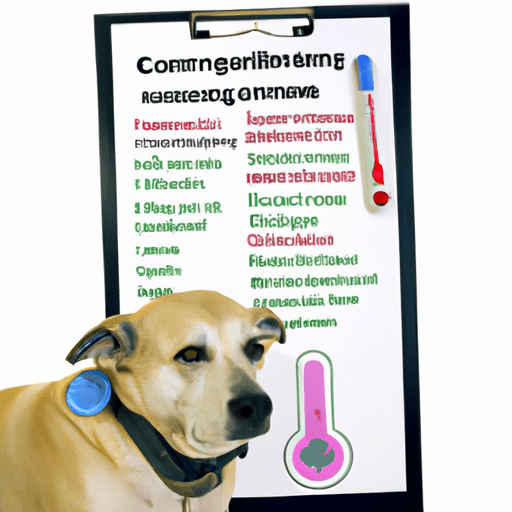Cancer is a word that no pet owner wants to hear. Yet, just like humans, dogs can also be affected by this deadly disease. By understanding the symptoms of cancer in dogs, you can take the necessary steps to ensure that your furry friend receives the care they need.
H2: Understanding Cancer in Dogs
Cancer is a group of diseases characterized by uncontrolled growth and spread of abnormal cells. In dogs, it can affect almost any part of the body, and the symptoms can vary greatly depending on the type and stage of the disease. Early detection is key, so it’s important to be vigilant and keep an eye out for any unusual changes in your dog’s health or behavior.
H2: Common Symptoms of Cancer in Dogs
There are several signs that your dog may have cancer. However, these symptoms can also be indicative of other health problems. So, it’s crucial to consult with a vet if you notice any of the following:
-
Lumps or Swelling: Unexplained lumps or swellings that persist or grow can be a sign of cancer. They can appear anywhere on the body and might not cause any discomfort to your dog.
-
Sores that Do Not Heal: If your dog has sores or wounds that are not healing, it could be a sign of skin cancer.
-
Weight Loss: If your dog is losing weight without a change in diet or exercise, it could be a symptom of cancer.
-
Loss of Appetite: Dogs with cancer often lose their appetite and show less interest in food.
-
Difficulty Breathing, Urinating, or Defecating: If your dog is having difficulty with any of these bodily functions, it could indicate a tumor in the relevant area.
H2: Types of Cancer in Dogs and their Symptoms
Different types of cancer can cause different symptoms. The table below outlines some common types of cancer in dogs and their associated symptoms.
| Type of Cancer | Symptoms |
|---|---|
| Skin Cancer | Sores that do not heal, growths on the skin, changes in skin color |
| Bone Cancer | Swelling, lameness or limping, pain |
| Breast Cancer | Lumps in the breast area, swelling, discharge |
| Lung Cancer | Coughing, difficulty breathing, lethargy |
| Lymphoma | Swollen lymph nodes, weight loss, loss of appetite |
H2: Taking Action When Symptoms Occur
If you notice any of these symptoms in your dog, it’s important to consult a vet right away. Remember, early detection and treatment can significantly improve your dog’s prognosis. It’s also important to maintain regular vet check-ups for your dog, as some types of cancer can be detected through routine blood tests and exams.
Frequently Asked Questions
Q: Can cancer in dogs be prevented?
A: While there’s no surefire way to prevent cancer in dogs, maintaining a healthy lifestyle can reduce their risk. This includes regular exercise, a balanced diet, and regular vet check-ups.
Q: Is cancer in dogs curable?
A: The curability of cancer in dogs depends on the type and stage of the disease. Some cancers can be cured if caught early and treated aggressively.
Q: What breeds are most susceptible to cancer?
A: While any breed can develop cancer, some breeds like Boxers, Golden Retrievers, and Rottweilers have a higher risk.
Remember, your vet is always the best source of information for your dog’s health. If you have any concerns or notice any changes in your dog’s behavior or physical condition, don’t hesitate to reach out to them.



